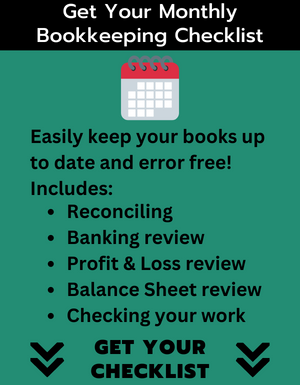When running a bookkeeping business, having a solid contract is crucial. A well-defined agreement protects you and sets clear expectations for your clients. This blog post will explore the essential bookkeeping agreement terms that every bookkeeper should include in their client contracts.
Why Bookkeeping Agreements Matter
A bookkeeping agreement acts as a roadmap for you and your client, outlining responsibilities, deadlines, and expectations.
Without one, you risk misunderstandings, unpaid invoices, and unnecessary stress.
Defining your terms will help you maintain professionalism and ensure a smooth working relationship.
Scope and Period of Work
Your agreement should specify exactly what bookkeeping services you will provide and the timeframe for completing them. Be clear about:
- Start and end dates – This ensures you’re not obligated to continue work indefinitely.
- What’s included – Define whether services include full-charge bookkeeping, financial statement preparation, or simply reconciliations.
- What’s not included – Clearly outline what services fall outside the agreement to avoid scope creep.
Example: “Bookkeeping services will include reconciliation of accounts, transaction categorization, and monthly financial reporting for the period of January 1 to December 31.”
Communication and Response Time
Clients need to understand how and when you will communicate with them. Set clear expectations for:
- Preferred communication methods – Could include email, scheduled Zoom calls, Slack, or a client portal.
- Response times – Let clients know when they can expect replies to their inquiries.
- Meeting schedules – If applicable, specify the frequency of check-ins or progress reports.
Example: “Client inquiries will be responded to within 24-48 business hours via email. Urgent matters require a scheduled consultation.”
Client Responsibilities and Document Deadlines
A bookkeeping agreement should specify that clients must provide necessary documents on time to avoid project delays. Common documents include:
- Bank and credit card statements
- Payroll reports
- Receipts and invoices
You should also define the consequences of late document submission.
Example: “Clients must provide all required documents within 30 days of request. If documents are not received within this timeframe, services may be paused or terminated.”
Payment Terms and Policies
Ensure your agreement includes clear payment terms to avoid confusion and delayed payments. Consider outlining:
- Accepted payment methods – ACH, credit card, PayPal, etc.
- Due dates – Specify whether payments are due before service begins, monthly, or upon project completion.
- Late fees – Define penalties for overdue invoices.
Example: “Invoices are due within seven (7) days of issuance. A late fee of 5% will apply to invoices overdue by more than 15 days.”
Team Involvement and Delegation
If you work with a team, your contract should clarify that clients may interact with multiple team members, not just you.
Example: “Bookkeeping services will be handled by our team, including qualified bookkeepers and assistants. Clients may communicate with different team members based on workload and expertise.”
Handling of Data Accuracy and Changes
If multiple people (such as virtual assistants or business owners) access the books, errors may occur. Your agreement should clarify that you are not responsible for changes made by other parties after your reconciliation and review.
Example: “We are not responsible for inaccuracies caused by third-party modifications to financial records after period-end reconciliation.”
Contract Termination and Notice Period
Clients should understand how to end the agreement if needed. Common contract termination terms include:
- Notice period – For example, 30 days written notice is required.
- Final invoice policy – Specify whether outstanding balances must be paid before termination.
- Access revocation – Clarify when access to bookkeeping software will be revoked.
Example: “Either party may terminate this agreement with 30 days written notice. All outstanding fees must be paid before termination.”
Final Thoughts: Strengthening Your Bookkeeping Agreements
Including these essential bookkeeping agreement terms protects your business while ensuring smooth client relationships. A clear and thorough contract minimizes misunderstandings, streamlines communication, and sets professional boundaries.
Do you have specific clauses in your bookkeeping agreement that have helped you? Share your thoughts in the Gentle Frog’s Bookkeeping Lily Pad community!









